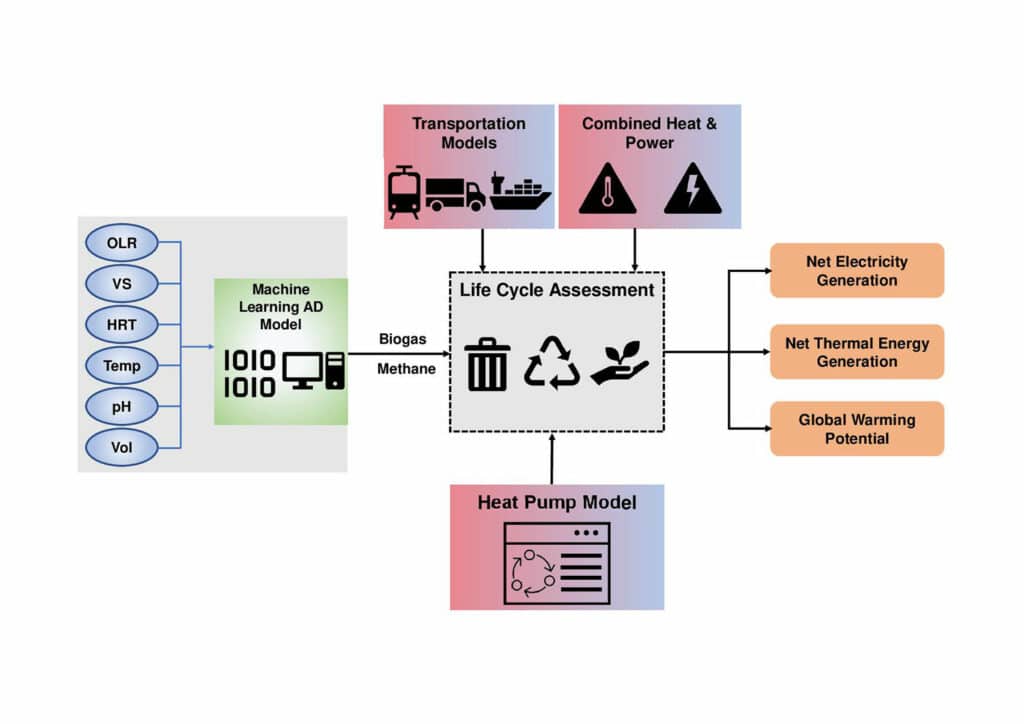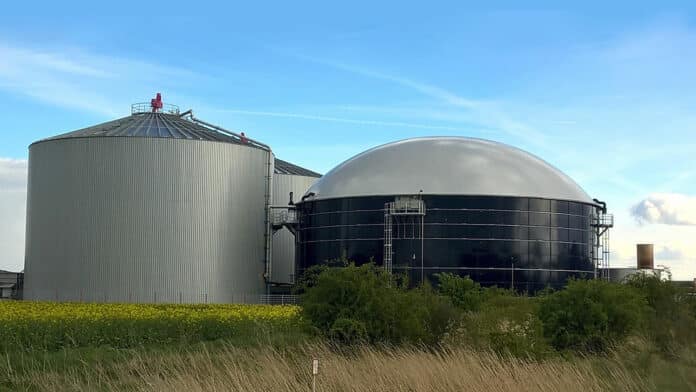Over the past decades, anaerobic digestion (AD) has proven to be an effective way of reducing the volume of organic waste significantly. Anaerobic digestion-based biogas production mitigates the environmental footprint of organic wastes and facilitates a circular economy.
Now, a University of Glasgow-led team of scientists has demonstrated that using air-source heat pumps to support anaerobic digestion could cut the carbon emitted during the production of biogas by more than a third.
Anaerobic digestion uses microorganisms in oxygen-free conditions to break down biodegradable materials like food waste and sewage sludge to release biogas – a mixture of methane and carbon dioxide which can be burned to turn turbines, generating low-carbon electricity.
During anaerobic digestion, bioreactors are used to maintain the optimal temperature to maximize the amount of biogas generated. Now, researchers investigated how the carbon footprint of bioreactors heated by air-source heat pumps – which draw ambient heat from the air in a low-carbon process – would compare over the length of their lifetime to conventional heating systems which use boilers powered by natural gas.

For their study, the team created a computer model of the thermodynamics of heat pumps and coupled it with machine learning-based anaerobic digestion modeling. They trained the new system from a database of existing research. Researchers then tested their new model by providing it with previously unseen real-world data to ensure it produced accurate results.
They found that the heat pump system would emit significantly less carbon than the baseline natural gas system when used to process food waste and sewage sludge. The modeled carbon reduction was up to 28.1% in an anaerobic digestion process maintained at a temperature of 55°C. At a lower temperature of 37.5°C, the carbon footprint of the process was reduced even further to a maximum of 36.1%.
“This model is the first technical and environmental assessment of just how useful air-source heat pumps could be in decarbonizing the process of producing biogas. The results suggest that there’s a significant role for heat pumps in supporting low-carbon anaerobic digestion,” said Dr. Siming You from the University of Glasgow’s James Watt School of Engineering.
“That could help inform future planning for municipal waste management facilities to help reduce their carbon footprints. It could also underpin the development of future bioreactors, which could be used in remote communities to help people turn their waste into biogas,” he added. “That kind of decentralized waste recycling could go a long way to helping people produce their own local source of electricity. The research is also part of a larger effort to decarbonize water and wastewater treatment in rural communities.”
Journal reference:
- Zahra Hajabdollahi Ouderji, Rohit Gupta, Andrew Mckeown, Zhibin Yu, Cindy Smith, William Sloan, Siming You. Integration of anaerobic digestion with heat Pump: Machine learning-based technical and environmental assessment. Bioresource Technology, 2022; DOI: 10.1016/j.biortech.2022.128485
